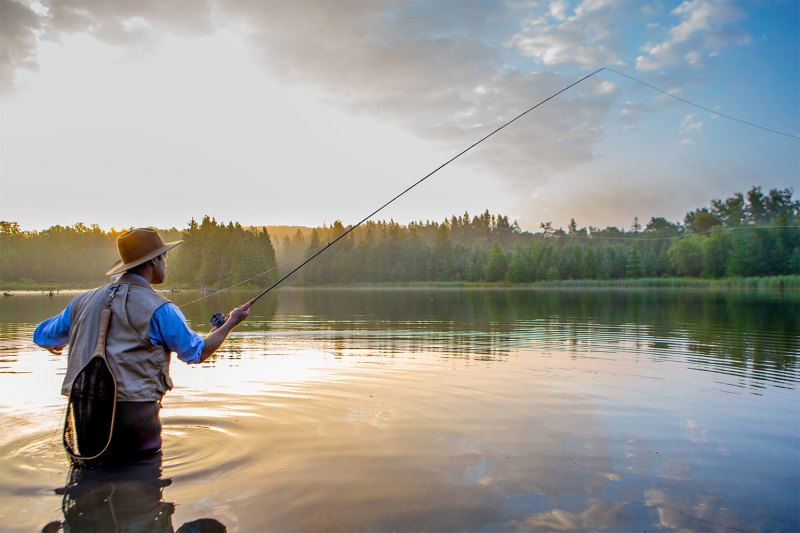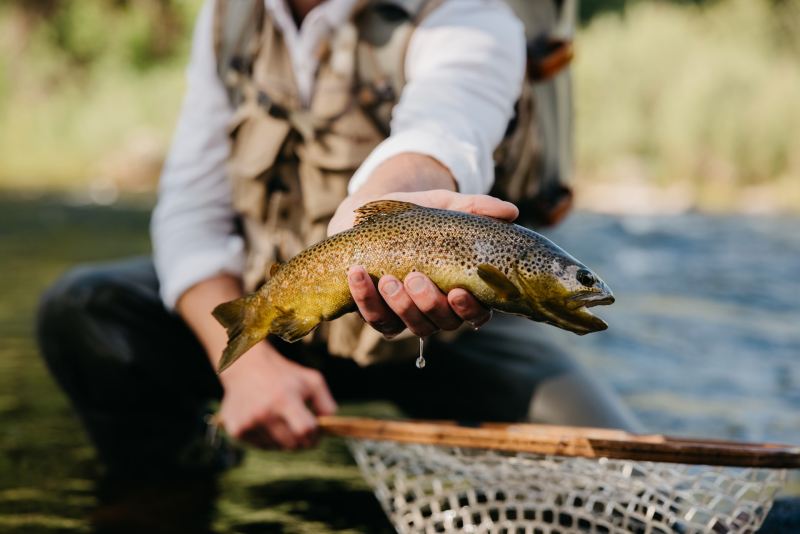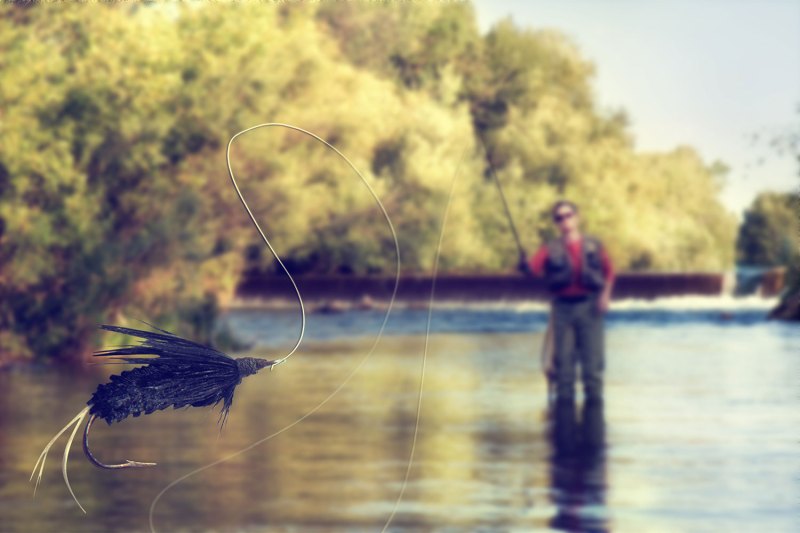
Yellowstone River is widely renowned as one of the hottest fly fishing spots in the U.S., but now the Fish Consumption Advisory Board has issued a consumption advisory act on mountain whitefish caught in the river. This act covers whitefish caught between Twin Bridges Road and Laurel on the Yellowstone River following a train derailment in late June that has seen chemicals in the river reach dangerous levels.
Shortly after the derailment, the Fish, Wildlife, and Parks Authority — FWP — collected five mountain whitefish and five rainbow trout to test the levels of chemicals. While the results aren’t necessarily conclusive on whether the train derailment is the cause of the increased levels of chemicals, it is clear that all fly fishermen and anglers should be cautious when it comes to eating any fish pulled from the Yellowstone River. Here’s what this means for Yellowstone River anglers.

What’s happening in Yellowstone River?
Though the train that derailed on June 24 contained potentially harmful chemicals, the cars containing these chemicals did not end up in the river. Despite this, levels of phenanthrene prevalent in mountain whitefish pulled from the river have reached potentially harmful levels. While this is likely to result from the derailment, the chemicals found in rainbow trout pulled from the river did not show any heightened chemical levels.
Phenanthrene is part of a chemical family of polycyclic aromatic hydrocarbons — PAHs — that may occur naturally in the environment but is also found in products such as oil, plastics, gas, and pesticides. Phenanthrene can cause birth defects, reproductive problems, and damage to the skin, body fluids, and immune system if ingested but is not classified as carcinogenic — other PAHs have been shown to cause cancer on testing.

Should you eat any fish found in the Yellowstone River?
While the only advisory warning currently in place is related to mountain whitefish and, at present, rainbow trout in the Yellowstone River are safe to eat, avoiding all fish caught in the river may be advisable for now — especially if you have any particular concerns regarding the effects of phenanthrene.
The FWP will continue testing on fish caught from the river and plan to include additional sites upstream and downstream of the derailment site and monitor chemical levels in mountain whitefish and other species. This extra testing will also aim to determine whether the levels of chemicals found in mountain whitefish directly result from this train derailment or elsewhere. For now, any anglers heading into Yellowstone should continue to check the Montana FWP website for updates.
Editors' Recommendations
- Camper van vs Class B RV: How to choose which to buy for your outdoor adventures
- Yellowstone vs Yosemite: Which national park should you visit?
- We really wish these compact, Korea-exclusive RVs and campervans were available stateside
- This tiny caravan uses one smart feature to almost double its space when parked
- There’s a new (old) fishing spot in Oregon as a river flows again for the first time in a century



